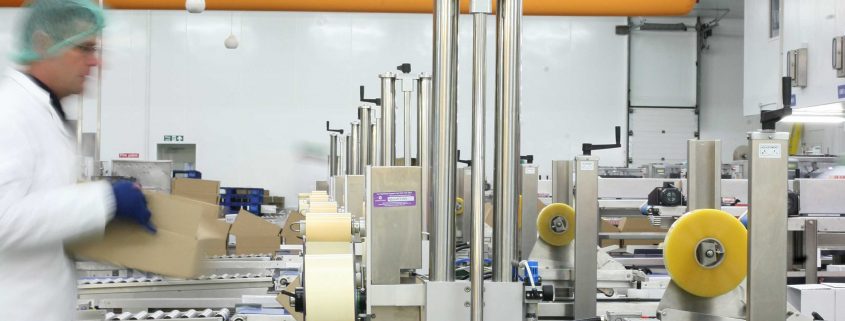Endoline shines spotlight on high-tech, automated systems in support of Industrial Strategy
Political uncertainty over Brexit has led to a drop in new plant and machinery investment from UK food manufacturers, while European counterparts forge ahead, streamlining their production facilities through automation and technology.
Consequently, the formation of the Food & Drink Sector Council, as part of the Government’s new Industrial Strategy, has been welcomed by automation specialists and will, according to Endoline Machinery, underpin a positive change for the UK’s manufacturing outlook.
The ‘farm-to-fork’ food chain, which is valued at £112 billion and employs 4 million people, is a huge part of the UK economy, and the creation of the council acknowledges this. Ultimately, the council will help food manufacturers weather the Brexit storm and guide them into clearer waters to increase output and export possibilities, to ensure that the UK secures its position as a global leader in the supply of high quality food and drink.
One of the key pillars outlined in the Industrial Strategy to drive the UK economy forward is innovation. This, according to Endoline’s Sales Director, Andrew Yates, will be integral to improving productivity and efficiency for food manufacturers. “Despite the UK’s advancing manufacturing economy, there is still a long way to go to catch up with other European countries. With increased productivity and output being a key measurement of success, it is vital that industry bosses understand the benefits of integrating smart, automated systems into their factory production lines.”
According to a survey by EEF and Santander, investment in new plants and machinery by UK manufacturers dropped over two years from 7.5% of turnover to 6.5%*. However, it is now hoped that, through the new Food & Drink Sector Council, this investment will be boosted and aid manufacturers in shifting away from labour intensive repetitive tasks, and create more intricate roles to optimise manufacturing processes and aid business development.
While automation specialists have been driving the intelligence of end of line systems forward for some time, there is now a greater emphasis on linking these systems together and integrating them into customers’ own specific data networks. Consequently, food manufacturers can capture, process and analyse big data from the factory floor remotely, and improve productivity, avoid downtime through predictive maintenance, upload new case recipes and optimise energy use.
Machinery is an integral part of the management of the whole production life cycle, providing the business with everything they need, so it is vital that manufacturers work with an automation specialist who can not only help them implement the technology but ensure that they are operating a lean operation, while leveraging as much as they can from their investment.
“The opportunities, and challenges, facing food manufacturers as we exit the EU are significant.” Comments Andrew. “While the formation of the Food & Drink Sector Council will help the industry navigate these changes, ultimately, food manufacturers need to understand that investment in automation will be integral to improving efficiencies, while building a more sustainable landscape for the UK’s food and drink economy.”




Leave a Reply
Want to join the discussion?Feel free to contribute!